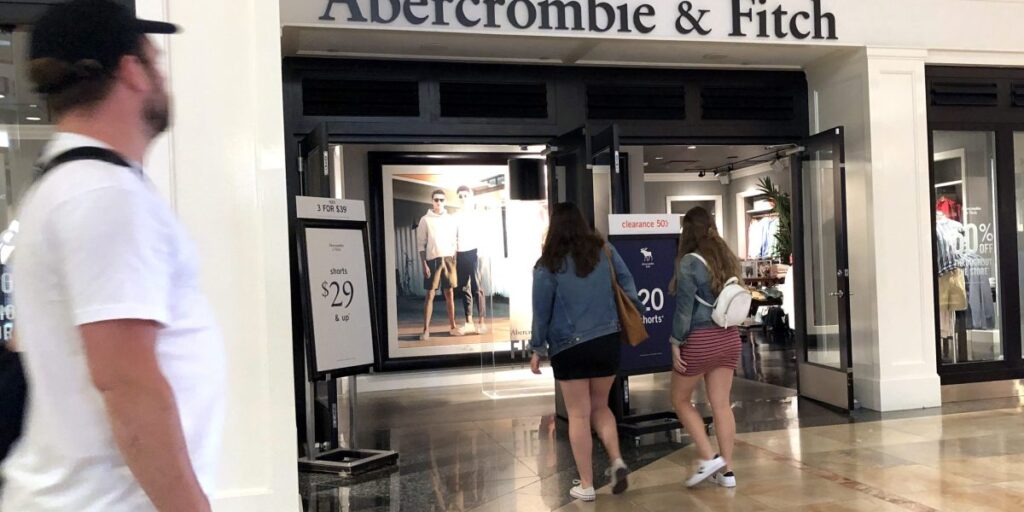
UBS analysts say the number of people shopping online is declining, but bad news about consumer spending could lead to a comeback of brick-and-mortar stores, which have unique advantages.
A survey of thousands of U.S. consumers found that the proportion of people buying clothing and other goods online fell by 3% year-on-year, and has declined compared with the past four years. The findings contrast with consensus and the bank’s previous estimates that online sales would continue to take market share from apparel and apparel retailers that primarily sell products in brick-and-mortar stores.
Now, banks are changing their tune. UBS analysts claimed in a note on Thursday that slowing online sales could be a boon for retailers that sell primarily in brick-and-mortar stores.
“The market continues to view online migration as a potential major disruptor for Softline companies, as most companies generate the majority of their sales from brick-and-mortar stores. We see online sales growth slowing [next 12 months] will change the narrative,” the analysts wrote.
According to the U.S. Department of Commerce, consumer spending increased 0.1% month-on-month from April to May, almost unchanged, and UBS Group changed its attitude. In May, in-store sales of clothing and accessories increased by 0.9%, and overall online sales increased by 0.8%.
UBS’s forecast is supported by evidence that consumers are once again recognizing a clear advantage of brick-and-mortar clothing and apparel stores: they allow customers to “try before they buy.”
The bank found that 47% of consumers (up 3% from last year) said the reason they don’t shop online is because they want to try products before buying. UBS found that even when consumers start looking for products online, they purchase them in physical stores 28% of the time.
“Online retailers have yet to find a way to overcome this objection to online shopping,” the analysts wrote. “We believe this is a key reason why online penetration will stop rising.”
In fact, the disconnect between what is sold online and in the real world continues to be a challenge for online retailers, in the form of an ever-increasing number of returns that cost sellers money, create logistical issues and pile up in landfills.
Some major brick-and-mortar retailers are already starting to see a recovery, confirming forecasts by UBS analysts. Abercrombie & Fitch last month reported its best-ever first-quarter results, with net sales up 22% from the same period last year. The company’s stock has grown more than Nvidia and is now the world’s most valuable company in 2023, with annual growth of 374%.
The trend of consumers shopping in-store more frequently than online may also help shares of another favorite mall favorite, American Eagle Outfitters and Boot Barn, soar as investors undervalue the perceived threat of online sales. their value, while online sales may be less of a threat.

